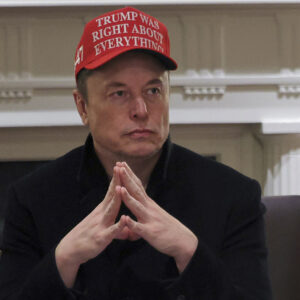In this in-depth case study, Tom “the Biz Doc” Ellsworth explores the potential of Elon Musk acquiring TikTok, examining the feasibility, challenges, and implications of such a move.
The study will provide a comprehensive look at TikTok’s journey—from its origins to its current status—highlighting key milestones and controversies along the way.
Additionally, the case will address concerns surrounding TikTok’s ties to China, analyzing its relationship with the Chinese government and the impact on its global operations.
The US has been embroiled in a prolonged debate over TikTok’s presence in the country, citing national security concerns. This case study examines Elon Musk’s potential involvement in TikTok, the history of the app’s legal battles, and the complexities of its connection to China.
The analysis is divided into three key sections: Elon Musk’s rumored interest in TikTok, the history of TikTok’s regulatory struggles in the US, and its ownership and ties to China.
Part 1: Elon Musk’s Rumored Acquisition
Rumors suggest that Elon Musk might consider acquiring TikTok and integrating it with his platform, X (formerly Twitter). This speculation arises as TikTok faces a January 19th deadline to divest its U.S. ownership or face removal from app stores. Musk could use TikTok to create a robust, two-sided advertising platform akin to Facebook and Instagram, leveraging TikTok’s popularity among younger demographics to drive ad revenue.
Key reasons for Musk’s potential interest include:
- Advertiser Appeal: TikTok’s success with advertisers could benefit Musk’s ad-driven model on X.
- Cross-platform Integration: Combining TikTok and X could provide advertisers with bundled deals, increasing overall ad revenues.
- Control Over Algorithms: Acquiring TikTok would allow Musk to standardize ad rates across platforms, cornering the market.
Musk’s global mindset and emphasis on free speech may also align with opposing bans on social media platforms, further fueling his interest in TikTok.
Part 2: TikTok’s Regulatory Timeline in the US
The U.S. government’s concerns about TikTok began in 2020 during Donald Trump’s presidency, citing national security risks tied to its Chinese ownership. Here are the key milestones in TikTok’s legal and political journey:
- 2020: Trump issued an executive order seeking to ban TikTok unless its U.S. operations were sold. Companies like Microsoft and Oracle explored acquisition opportunities. TikTok initiated “Project Texas,” routing U.S. user data through Oracle’s servers to alleviate concerns.
- 2023 Congressional Hearing: TikTok CEO Shou Zi Chew testified before Congress, defending the app’s data practices and privacy measures. Despite assurances, lawmakers expressed skepticism about TikTok’s ties to its Chinese parent company, ByteDance.
- Montana’s Ban: In May 2023, Montana became the first state to ban TikTok, citing privacy concerns. However, a federal judge later blocked the ban.
- 2024 Developments: In April 2024, President Biden signed a bill restricting TikTok operations in the U.S. ByteDance responded by suing the federal government, claiming the ban was unconstitutional. The U.S. Department of Justice later accused ByteDance of violating child privacy laws, escalating tensions.
- Supreme Court Ruling: In January 2025, the Supreme Court upheld the law requiring ByteDance to divest TikTok’s U.S. operations, stating that foreign companies do not have First Amendment rights. TikTok must sell its U.S. operations or face a ban.
Part 3: TikTok’s Ownership and Ties to China
TikTok’s ownership structure reveals complex ties to China, raising security concerns:
- Corporate Layers: TikTok LLC is incorporated in Delaware but is owned by entities registered in the Cayman Islands and headquartered in Beijing. This structure obscures direct ownership and raises red flags about data handling.
- Golden Shares: Under Chinese law, the government holds “golden shares” in ByteDance, granting it influence over corporate decisions. ByteDance’s compliance with the 2018 National Intelligence Law further heightens concerns, as Chinese companies are legally required to share data with the government.
Despite TikTok’s efforts to localize data storage and oversight through Project Texas, the U.S. remains wary of potential backdoors that could compromise national security.
Conclusion
Elon Musk’s acquisition of TikTok could offer a solution to the app’s U.S. troubles, aligning its operations with American interests while creating a powerful advertising platform. However, the sale faces significant hurdles, including ByteDance’s compliance with Chinese regulations and U.S. skepticism about its intentions.
As debates continue, TikTok’s future in the U.S. hangs in the balance, with Musk’s potential involvement adding a fascinating twist to the unfolding saga.





































Add comment